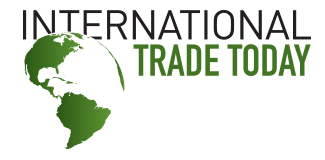Trade Skeptic Says Coming de Minimis Bill Is 'Very Pathetic'
Lori Wallach, head of Rethink Trade and a longtime free-trade skeptic, said the House Ways and Means Committee plans to vote next week on a new bill to restrict de minimis, which wouldn't allow goods subject to Section 301 tariffs to enter through the de minimis pathway. The Section 301 tariffs covered roughly two-thirds of Chinese exports at the time the last round was imposed, but trade flows have shifted as a result of the tariffs, as imports of those tariff lines from China fell by 13%, according to the International Trade Commission.
Wallach called the bill, which she said has no Democratic support as of yet, "very pathetic," and said she instead supports Rep. Earl Blumenauer's effort to restrict de minimis for shipments both from China and for goods of Chinese origin that enter the U.S. from other countries. Oregon's Blumenauer, the top Democrat on the Ways and Means Trade Subcommittee, is retiring year-end.
Wallach, who was speaking at the National Council of Textile Organizations annual conference April 11, credited that trade group for capturing members of Congress' attention on the issue. Earlier in the day, a Milliken & Company executive said during video testimony that NCTO punches over its weight.
"Whoever said you guys are truly punching above [your] weight, that is truly the case," said Wallach, who has spent decades as a professional activist on free trade issues.
Wallach said opponents of changes to the $800 de minimis threshold -- whom she identified as express shippers and large online retailers -- have noticed that those who wish to restrict de minimis have built up "a head of steam."
Saying they're trying to figure out how to poke a hole and let that steam escape, she called this bill one of their "cheesy ideas."
Wallach said express shippers and large online platforms such as Amazon "have got the ear, unfortunately, of Republican leadership."
She encouraged NCTO members to lobby their representatives on the Ways and Means Committee and tell them: "Do not think you're going to make us happy on this" issue with this bill.
A committee spokesperson didn't respond to a request for comment about Wallach's assertion that a markup is coming April 17, or on her description of what the bill would do. An analyst at an outside group that wants to maintain the current de minimis threshold and improve data collection said he had not seen the text yet and therefore couldn't comment.
While Wallach said that de minimis critics should continue to push for Blumenauer's bill, "we can't rely on that" slipping its way into an end-of-the year bill, and so, she said, the best avenue is to convince CBP and the Treasury Department to restrict de minimis administratively.
When DHS recently released its textile enforcement plan, in response to NCTO lobbying, it didn't change what products or countries are eligible for de minimis -- instead, it promised improved screening, expanded targeting, focused enforcement operations and more isotopic testing, to identify Xinjiang cotton in apparel in de minimis packages.
Wallach said that although the $800 limit is in law, the original statute says that Treasury may choose not to apply duties to imports if it is not a benefit to the U.S. government, but doesn't require that de minimis treatment be given to any imports.
She said that between the problem of fentanyl-related imports through de minimis and the amount of duties they are forgoing on apparel imports, it is in the national interest to restrict de minimis so that no e-commerce can qualify for that entry route.
She said the administration has the discretion to force these packages to enter through the normal entry process. Even then, they wouldn't have the staff to inspect every package, she acknowledged, but she said that with more information about the companies sending the goods and the products inside, CBP would have enough data to do proper risk assessment.



